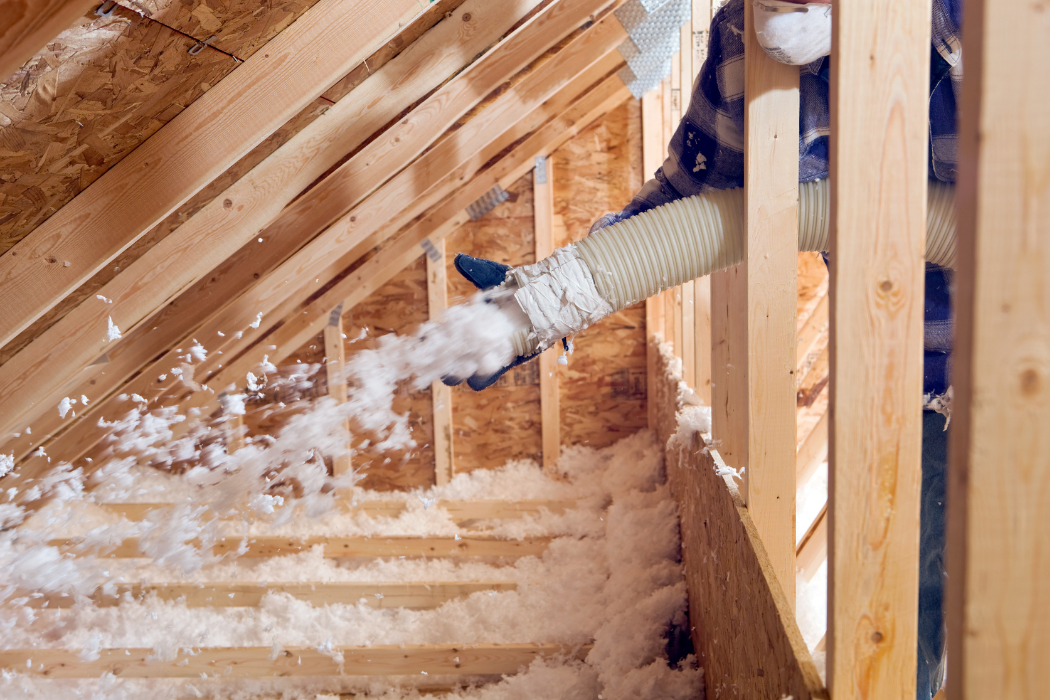Insulation: it’s what keeps your house warm in the winter and cool in the summer. While not as glamorous as a kitchen or bath makeover, this behind-the-scenes home improvement project offers a lot of bang for the buck. “Adding insulation is the quickest return-on-investment for any home improvement project,” says Joe Corbino, a project consultant here at G. Fedale Roofing & Siding. He adds that the energy savings and home comfort benefits are felt right away.
A drafty house during the winter is one telltale sign that your insulation may be insufficient. A blower door test is a useful tool in assessing the extent of the problem. The test measures air leakage based on the square footage of your home and air volume.
The age of your home, style of home, construction materials used, and building codes during the time of construction also play a role. Today’s building codes in Delaware require insulation with an R-value of 49 for attic spaces and an R-value of 19 for floors.
The insulation process is, of course, an easier install for new construction. For existing homes, blown-in insulation or batt fiberglass-blend insulation is added to nooks and crannies via crawlspace or attic access, or by drilling directly into the walls of the home. Perhaps the perfect time to assess, access, and install insulation is in conjunction with a roof replacement. Dovetailing the projects in this way creates ease of access and also enables assessment of the home’s method of ventilation.
Although a different service provision altogether, ventilation is vital to the overall health of the home. Air exchange should occur once every three hours, with that ventilation typically occurring via a combination of intake at the soffits and then exiting via gable vents, ridge vents, or an attic fan. A tight house – one that is over insulated – presents a host of problems.
Insulation installation can be a messy and involved job and, as such, is not recommended as a DIY project. Expect the job to take a couple of days or longer. A trained professional will carry liability insurance and will safely work around the home’s electrical wiring.

